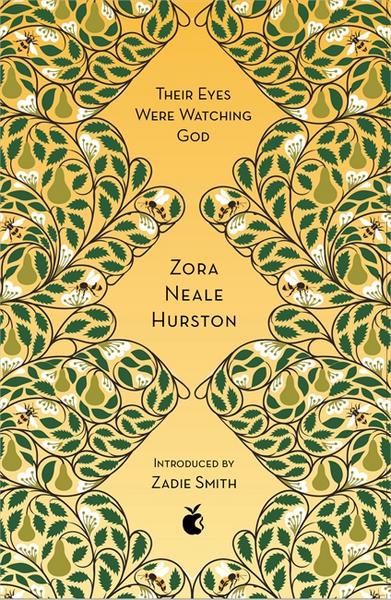
Their eyes were watching God
Some books have the capacity to sketch a scene, develop a character or deliver a passage in a way that just stays with you, and Zora Neale Hurston’s Their eyes were watching God has just this ability. There is an episode, in which Hurston describes her protagonist Janie, a girl about to become a young woman, lying under a pear tree and watching the comings and goings of bees, which has stayed with me ever since I read it. Hurston’s prose is startling in its beauty and insight, funny in its casual observations of human behaviour and conversation, and entirely unapologetic.
Their eyes were watching God, published in 1937, is widely regarded as a classic of the Harlem Renaissance. Hurston, who appears to have been a bit of a rock-star writer type, is said to have written this, her most well-known novel, in seven weeks. And despite being a writer of exceptional talent, she passed away in relative obscurity, having worked as a cleaner for the last part of her life. Writers including Maya Angelou, Toni Morrison and Alice Walker have cited her as a literary forebear.
The book is set in early 20th century Florida, and tells the story of Janie, a woman utterly determined to go her own way. Her grandmother, a freed slave, raises her after her mother is raped by a schoolteacher and runs away. The grandmother works as a cleaner for a white family, and Janie grows up with their children, unaware of herself as Black until she sees herself one day in a photograph. Out of a desire to give her granddaughter the security her own daughter never gained, the grandmother insists on marrying Janie to a much older, and well-established, propertied man. He is a man Janie cannot learn to love, and she absconds with Jody Starks, a man bound for Eatonville, a town that is to be made for and by African Americans. Jody loves Janie, but puts her on a pedestal and denies her equal participation in their life together. She yearns for wider horizons, and the passion their marriage was once built on erodes. The last act of the romantic journeys of the thrice-married Janie introduces Tea Cake, a charismatic nomad significantly younger than our heroine. He’s a gambler and a bit of a trickster, but the love the two feel for each other propels them onward into a life of shared adventures as equals.
At times, the novel seemed dangerously near sentimentality, fuelled as the entire plot sometimes appeared to be by the quest for heterosexual romance – and the success of this as the measure of a successful life. But to reduce it to this would be to do Hurston a disservice and, I think, to misread the book, which is about Janie’s quest for a full life. She achieves her versions of this via the men that open up wider horizons for and with her. And the story is also inseparable from its setting: from the porch conversations amongst the townsfolk of Eatonville; from the ‘muck’ of the Everglades; from the protean surroundings of southern Florida, which is in turn so generous in its fertility, and so dangerous in hurricane season. The novel is also about racism and colourism, about sexism, and the intersectionality of discriminations. One might stumble over the rendering of speech in its phonetic local cadences, but also this is an integral part of Hurston’s meticulous observation – her eye and ear for detail – of the world she sets her story in. Not for nothing is she literary grandmother to some literary greats, and Their eyes were watching God is deservedly a classic.
Order the book here and support us! The work behind poco.lit. is done by us – Anna und Lucy. If you’d like to order this book and want to support us at the same time, you can do so from here and we will get a small commission – but the price you pay will be unaffected.
